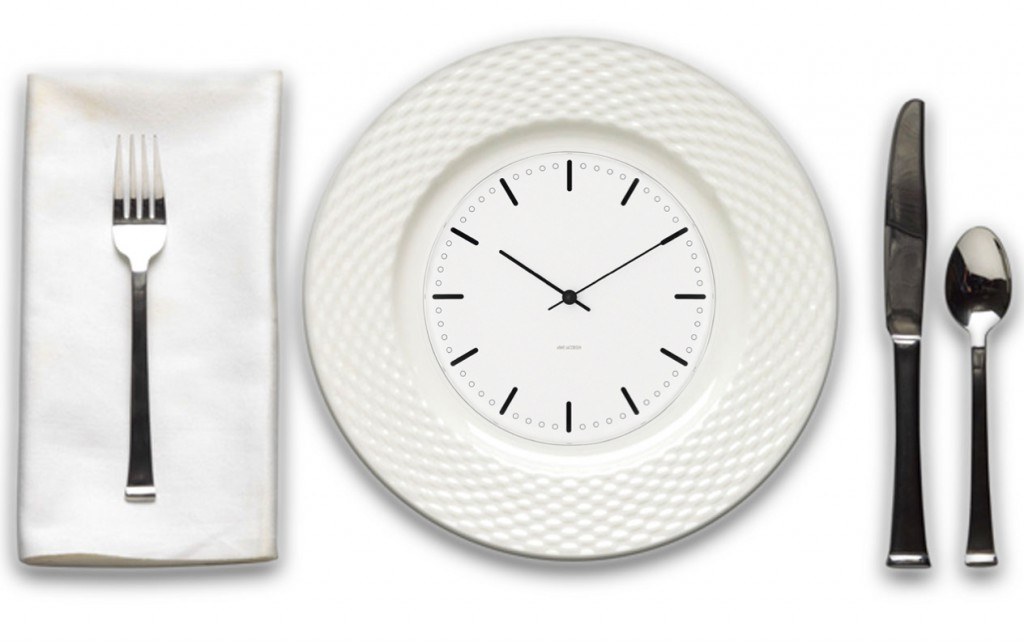
If you’ve gotten past Day 1 of this 2-week Intermittent Fasting program, you’ve beaten 1 in 3 odds. Most people in my experience can’t even go 4 hours without cheating with a snack. That’s how entrained we are to eating breakfast early in the morning for many reasons (none of them healthy).
Breakfast: The most important meal…?
Break is the most important meal of the day, for food sellers. Look at the crap that most breakfast is: wheat, sugar, flavorings. Those ingredients are cheap and easy to prepare in a million recipes, so they’re most profitable for the vendors. If you’re part of a family that lives together, you may say “breakfast is the only time we get to all spend time together.” How about taking the family for a walk outside instead of sitting at the table, everyone staring at their cell phones?
Day Two is Worse
The first day of introducing Intermittent Fasting into your regimen is bad — your brain is entrained to prepare your blood for your intake of junk, so it pre-floods the bloodstream with insulin. Insulin causes hunger. Until the body naturally removes that unnecessary insulin, you stay hungry. But that first day of IF is mostly biological hunger. Day two is worse.
On day two, you might sense a psychological hunger. You might feel like you’re forgetting something but not know what it is. The brain’s reward centers (the ones that make you happy, and can make you addicted) actually appreciate junk food for breakfast. Why? Because the brain is trained to keep the body alive, not keep the body healthy. So when it goes 2 mornings without a food engineer created happiness-instilling pancake by 9am, the brain gets frustrated. More hunger sets in. In some very overweight individuals, a morning of depression sets in.
Worse, your brain might start tricking you into actually eating. ”oh, it’s just ONE donut hole and I didn’t even pay for it!” Your brain is your body’s enemy, at least early on into re-training your body to consume all that excess fat for energy, instead of a combination of wheat, sugar and flavorings (that will become more fat on your body).
Your Body Wants to Adapt
Even though your brain is your enemy today, tricking you with unnecessary hormonal releases in order to encourage you to eat something you don’t need, your body is doing the opposite. It’s almost begging you to let it release that excess fat it carries around. You just don’t listen to your body, because your brain will continue to send tricky signals so you avoid noticing that the body is broken.
When you get tired just after lunch, that’s your body telling you that you’ve overeaten bad food and it’s punishing you. Your brain says “Nah, you’re just tired because you’re overworked.” In truth, on an IF regimen, your lunch time hours may be your most productive of the day thanks to the hunter-killer mode inspired by the release of catecholamines. Not only do those aggressively attack stubborn fat, but they also give you a mental focus and clarity that coffee and nicotine can’t come close to. And, they’re not addicting.
Your body stored fat whenever it had too much energy it couldn’t use — it does this for periods of low food intake, or even periods of starvation. Daily IF is not starvation, though. It’s just low calorie intake for a few hours. Since you don’t (usually) eat when you’re sleeping, your fasting awake hours are only 6-8 hours that your body will use to burn stored fat for energy. If you give it that opportunity, and if you ignore your lying brain until the brain realizes that you’re not going to croak from not eating for a few hours.
Burning Fat or Burning Muscle?
Many people who are overweight still ask me if they’ll burn muscle instead of fat. The caloric value of fat is superior to protein, commonly measured as 9 calories per gram of fat and 4 calories per gram of protein. Since fat is the superior energy storage macronutrient, it’s the one the body uses fastest for energy when there’s no food having been eaten in recent hours.
Also, the heart and lungs are muscles, and the body will protect muscle when there’s an excess of fat it can use. So adding just 6-8 hours of no eating to your day (and then eating the calories you want during your eating window) isn’t going to destroy your muscle significantly, if you continue to live your life as you did in your “stuff your face all day long” stage.
Of course, if you include high exertion exercise into your day at the same time you start IF, you may have some muscle loss. I’ll address muscle conservation, IF and high exertion exercise in week 2 — for now, stick to your normal daily activities. Feel free to add in a nice, slow walk in place of preparing and consuming that early breakfast, if you have too much energy.
Remember, Day Two is Worse
Today will be worse than yesterday. Yesterday your body was surprised. Today your brain is a liar. But it’s just a few hours of not eating, and in a few days, you’re going to learn to switch to hunter-killer mode and you’re going to love it. You’ll feel years younger when that happens, if you can only avoid that free donut hole your co-worker brought into the office.
It’s not too late to look great this season, and it’s just a 2 week self-study for you that might make all the difference in your future.
Continue on to Intermittent Fasting: Day 3.
